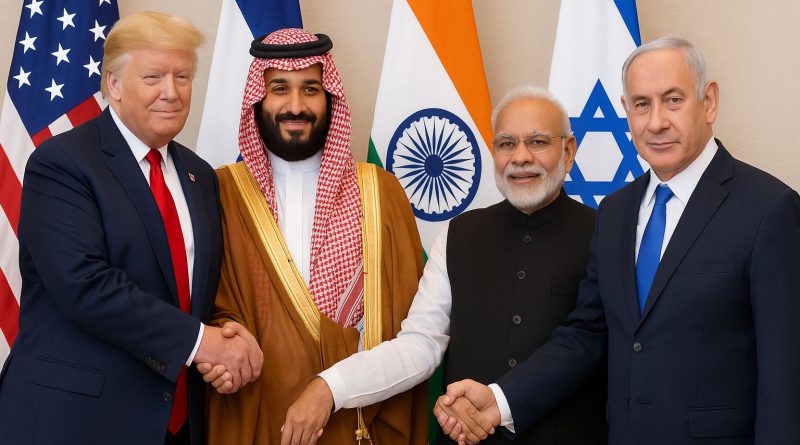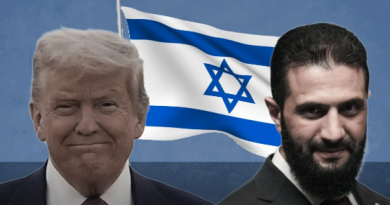Trump Secures Netanyahu’s Backing for Gaza Peace Plan
The Gaza peace plan calls for an immediate ceasefire, the release of Israeli hostages, disarmament of Hamas, and a gradual withdrawal of Israeli forces.
In a bold move that has reignited hopes for peace in West Asia, former US President Donald J. Trump has unveiled a sweeping 20-point plan to bring an end to the Gaza war.
The proposal, designed to combine security, humanitarian relief, and long-term development, has already won cautious but significant support from Israeli Prime Minister Benjamin Netanyahu. While challenges remain, the plan is being hailed by many as the most comprehensive and practical framework in years.
The initiative was formally presented at the White House on Monday, where Netanyahu appeared alongside Trump. The Israeli leader signaled his backing, describing the plan as consistent with Israel’s war aims, though he stressed that Israel remained prepared to act independently if Hamas were to resist.
“If Hamas rejects your plan, Mr. President, or if they supposedly accept it and then basically do everything to counter it, then Israel will finish the job by itself,” Netanyahu said.
Despite the warning, the broader tone was one of cautious optimism. Trump emphasized that approval from all sides was “beyond very close,” while noting that some details still required clarification.
Having circulated the plan among Arab leaders, he expressed confidence that a historic consensus could be achieved. “ALL ARE ON BOARD FOR SOMETHING SPECIAL, FIRST TIME EVER,” Trump had written earlier on social media.
The Gaza peace plan calls for an immediate ceasefire, the release of Israeli hostages, disarmament of Hamas, and a gradual withdrawal of Israeli forces. Importantly, the framework introduces the idea of a “temporary international stabilisation force” to maintain calm during the transition.
At the heart of the proposal is a new transitional authority headed by Trump himself and including other foreign leaders — a move aimed at ensuring impartial governance while laying the groundwork for a long-term solution.
The plan also makes significant humanitarian commitments. Palestinians will not be forced to leave Gaza, with the document stating: “We will encourage people to stay and offer them the opportunity to build a better Gaza.”
Following Israeli withdrawal, Gaza’s borders would open for aid and investment, creating conditions for reconstruction and development. Former Hamas fighters who renounce violence and commit to coexistence will be granted amnesty, signaling a path toward reconciliation.
Netanyahu, while supportive, noted that Israel would retain a measure of security oversight for the foreseeable future. He also dismissed any role for Hamas or the Palestinian Authority in administering Gaza, stating: “Gaza will have a peaceful, civilian administration that is run neither by Hamas nor by the Palestinian Authority.”
Modi: ”A Viable pathway to long-term and sustainable peace”
India’s Prime Minister Narendra Modi was among the first world leaders to endorse the plan, underscoring its potential to secure peace and stability for both Israelis and Palestinians. In a statement shared on X (formerly Twitter), he wrote:
“We welcome President Donald J. Trump’s announcement of a comprehensive plan to end the Gaza conflict. It provides a viable pathway to long term and sustainable peace, security and development for the Palestinian and Israeli people, as also for the larger West Asian region. We hope that all concerned will come together behind President Trump’s initiative and support this effort to end conflict and secure peace.” — Narendra Modi (@narendramodi)
Modi’s words highlight India’s growing role as a bridge-builder in global diplomacy. For New Delhi, a stable West Asia is critical to energy security, trade, and the safety of its large diaspora. More broadly, Modi’s statement aligns with India’s longstanding call for dialogue and cooperation in resolving international conflicts.
The Indian leader’s positive stance is expected to encourage other countries in Asia, Africa, and the Middle East to engage constructively with the initiative. Analysts suggest that such endorsements strengthen the legitimacy of Trump’s plan and build momentum toward a multilateral solution.
Hope Amid Challenges
The road ahead is not without obstacles. Hamas has yet to comment, and skepticism persists after decades of failed peace efforts. Yet, unlike past initiatives, Trump’s proposal emphasizes not just security but also tangible improvements in daily life through reconstruction, economic investment, and international oversight.
Families of Israeli hostages have urged all sides to seize the moment, while many Palestinians — exhausted from years of conflict — cautiously expressed a desire for genuine change.
The Gaza war, triggered by Hamas’s October 7, 2023 attack, has taken a staggering toll, with more than 66,000 Palestinians and over 1,200 Israelis killed. Against this backdrop of immense suffering, the new plan offers a glimmer of hope that the cycle of violence could finally be broken.
While Netanyahu continues to balance internal political pressures from his far-right coalition, Trump’s proposal may provide a rare window of opportunity for peace. Modi’s endorsement further underscores the importance of collective global support in transforming the plan from an ambitious document into a reality.
As Trump declared, approval is “very close.” If the momentum continues, this initiative could mark the beginning of a historic new chapter in West Asia — one defined not by endless conflict but by peace, security, and shared prosperity.



